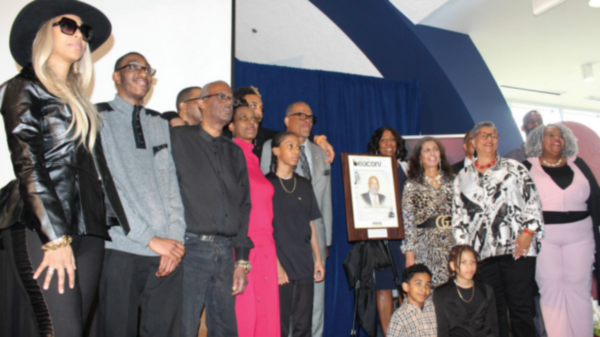By Stacy M. Brown
NNPA Newswire
The Bill & Melinda Gates Foundation launched its fifth annual Goalkeepers Report that features an updated global dataset illustrating the coronavirus pandemic’s adverse effect on progress toward the United Nations Sustainable Development Goals.
Authored by Bill Gates and Melinda French Gates, the report revealed that disparities caused by COVID-19 remain stark, and those who the pandemic has hardest hit will be the slowest to recover.
“Organizations are committed to helping. There is a genuine commitment, even at the United Nations when we take stock of what we are doing, there is a genuine interest in what we’re doing,” Olufunke Olufon, the senior communications officer of Global Communications and Engagement for the Bill & Melinda Gates Foundation, told the National Newspaper Publishers Association (NNPA).
Despite the ongoing pandemic that has led to more than 4.55 million deaths globally, the Goalkeepers Report offered some promise.
“We release this report every year, and our report last year was how COVID could negate 25 years of progress in 25 weeks,” Olufon stated.
“In this report, what we thought was not as bad as we envisioned last year,” she continued.
“One key thing has been innovations of countries even across Africa – not wealthy countries – how they were able to rise. We call them miracles in the report. They have prevented things not to be as dire as it could have.”
Those “miracles” include COVID-19 vaccines that were a result of decades of investment, policies and partnerships that established the infrastructure, talent, and ecosystems necessary to deploy them quickly, Olufon remarked.
While the report revealed that COVID-19 is directly responsible for an additional 31 million people pushed into extreme poverty in 2020 compared to 2019, the world did step up to avert some of the worst-case scenarios.
For instance, in the 2020 Goalkeepers Report, the Institute for Health Metrics and Evaluation (IHME) predicted a drop of 14 percentage points in global vaccine coverage – effectively erasing 25 years of progress in weeks.
However, a new analysis from IHME demonstrates that the decline was only half of what most anticipated.
Though pleased with the drop, the Gates Foundation still called that “unacceptable.”
In the report, the co-chairs highlight the “breathtaking innovation” that was only possible because of global collaboration, commitment, and investments over decades.
They acknowledge that averting the worst-case scenarios is commendable, yet they note it’s not enough.
To ensure a truly equitable recovery from the pandemic, they call for long-term investments in health and economies – like the ones that led to the rapid development of the COVID-19 vaccine – to propel recovery efforts and get the world back on track to meet the Global Goals.
“[The past year] has reinforced our belief that progress is possible but not inevitable,” the co-chairs wrote.
“If we can expand upon the best of what we’ve seen these past 18 months, we can finally put the pandemic behind us and once again accelerate progress in addressing fundamental issues like health, hunger, and climate change.”
The report highlights the disproportionate economic impact that the pandemic has had on women globally.
In high- and low-income countries alike, women have been harder hit than men by the global recession triggered by the pandemic.
“Women face structural barriers in every corner of the world, leaving them more vulnerable to the impacts of the pandemic,” Melinda French Gates said in a news release.
“By investing in women now and addressing these inequities, governments can spur a more equitable recovery while strengthening their economies against future crises. It’s not just the right thing to do – but smart policy that will benefit everyone.”
The Gates Foundation also tackled the lack of equitable access to COVID-19 vaccines, with Bill Gates calling it a “public health tragedy.”
More than 80 percent of all COVID vaccines have been administered in high-and-upper-middle-income countries, with some securing two to three times the number needed so they can cover boosters.
The report shows that low-income countries have received less than 1 percent of doses.
Specifically, Africa, which is home to 17 percent of the world’s population, has less than 1 percent of the globe’s vaccine manufacturing capabilities.
“Vaccine has its hesitancy and inequity both within wealthier countries and developing nations as well as internally within the United States,” Olufon stated.
“Global bodies have been set up to reduce inequity, and there is a call to action where countries need to invest and put in more financial resources to ensure their vulnerable populations have access. There’s obviously great demand for vaccines, but there’s not been a huge supply going to Africa.”
Olufon added that the global community could meet the needs of ensuring that the most vulnerable populations have vaccine access by turning to trusted community members and partners.
“A lady in rural Nigeria is not listening to science,” Olufon added.
“She’s listening to the trusted voices, so we’ve found ways in which to work. This is the power of community.”

You must be logged in to post a comment Login